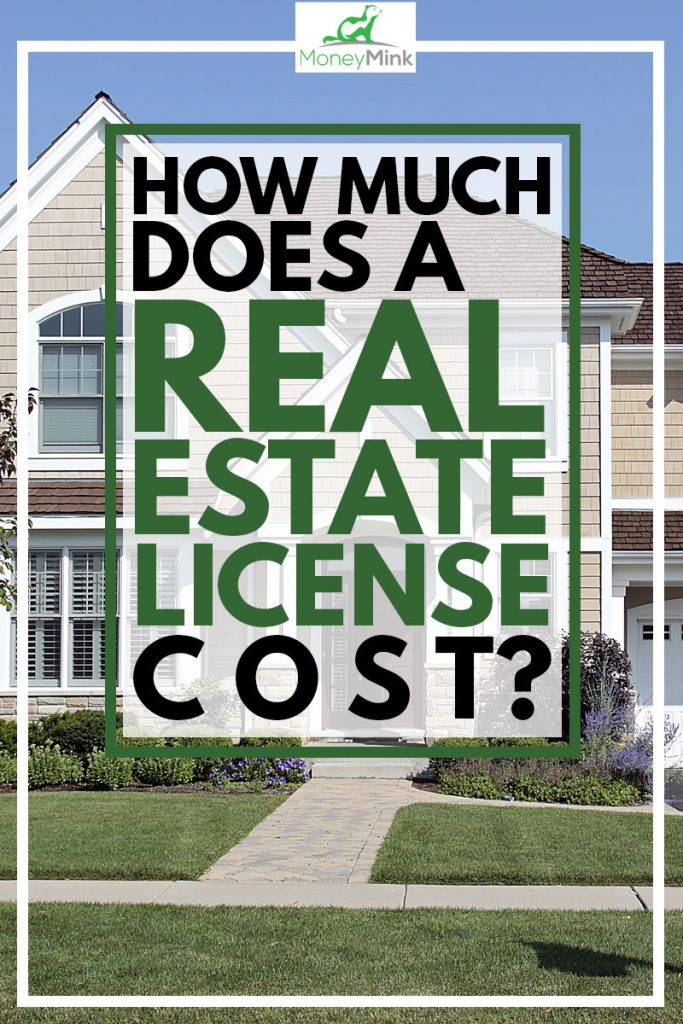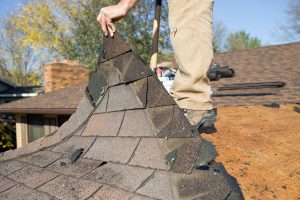Earning a real estate license is a goal for many people, but the cost can be an obstacle. Therefore, it’s essential to know how much a real estate license costs. We have researched this important question, and are happy to share the results with you!
To earn a real estate license, you’ll pay anywhere from $170 to $700 or more to learn what you need to know and pay for your testing and license. But costs vary by state—for example, your expenses could equal:
- $305 in exam and application fees in California, plus the cost of 145 credit hours
- $83.75 in Florida plus the fees associated with 63 credit hour courses
- $70 in New York plus the cost of 75 hours of education
- $97.00 in Pennsylvania plus 74 hours of pre-licensing education
- $205 in Texas plus $76.50 in supplemental fees and the cost of 180 hours of continuing education
Also, your continuing education costs can range from $100 well into the thousands, depending on where you take classes and how many you need.

Want to know more? Read on for details on cost, including the difference between salesperson and broker status. Plus, we’ll explain how much you can expect to pay for your application, other fees, and continuing education.
What Are the Costs of Getting a Real Estate License?
To earn a real estate license, you first need continuing education in real estate. Then, you must pass an exam and apply for a license. Each state has different requirements—and therefore different costs—so you need to check with the regulatory agency in your state to find out what you need for your application.
Here’s a breakdown of what you can expect to pay for on your journey toward becoming a licensed real estate professional.
Becoming a Real Estate Salesperson versus a Real Estate Broker
When most people talk about earning a real estate license, they’re referring to becoming a real estate salesperson. But the licensing requirements—and fees—vary between the two options. A salesperson must earn continuing education credits and pass an exam, but a broker has more in-depth educational requirements to meet.
In general, it will cost a bit more—and take a while longer—to become a broker than a salesperson. Coursework that covers things like taxes, ethics, and insurance can also cost you, as you’ll be taking extra classes to earn licensure.
Real Estate License Costs Per State
In California, you must pay for both your exam and license application. Combined, the two components necessary to become a licensed real estate salesperson cost $305. To become a broker, you must pay $395. Renewal fees—which you must pay to renew your license every four years—are $245 for a salesperson and $300 for a broker.
For Florida residents, you can apply for a license as either a sales associate or broker. A sales associate license costs $83.75. To ‘upgrade’ from a sales associate to a broker, the fee is $91.75. However, Florida does offer a fee waiver for residents who are military personnel or spouses of military personnel, plus people with low income.
In New York, a real estate salesperson license costs $55 plus $15 for a written exam. A broker application is $155, and the written exam is $15.
Pennsylvania real estate professional applications are $97.00 for a salesperson license and $169.50 for a broker.
Texas residents must pay $205 to apply for a sales agent license or $305 for a broker license. Texas also charges supplemental fees, including a $38.25 fingerprint fee, $28.25 for a background check, a $10.00 real estate recovery fee, and a $20 processing fee if you apply via a paper application.
Real Estate Licensure versus Becoming a Realtor
Another significant consideration when earning a real estate license is whether you want to become a real estate agent or a realtor. If you want to become a real estate agent, you need a salesperson or broker license, and that’s it.
To become a realtor, however, you must join the National Association of Realtors (NAR). NAR is a professional association that boasts an excellent reputation for holding real estate professionals to high standards. In short, becoming a NAR Realtor can earn you confidence from clients—and recognition in the workplace.
But NAR Realtors must first join a local real estate association. Then, they can join NAR but must pay $150 per year in dues.
How Much Do Real Estate Courses Cost?
All real estate professionals must take continuing education, college-level courses before they can earn a license. After all, you need to learn about things like whether a mortgage is considered a debt.
But real estate courses vary widely in cost, from as little as $100 with specialty providers to thousands of dollars at colleges and universities.
But course requirements vary by state, so you may need fewer classes for some licenses. Be sure to check that your course provider meets state laws—most offer a database of certified educational institutions from which you can choose.
California Real Estate Courses
For example, in California, applicants for the salesperson license must complete three college-level courses in specific subjects, including Real Estate Principles, Real Estate Practice, and another elective type course (from a specified list). In total, you must take 135 hours of coursework. Some providers offer all three courses for $130.
Real Estate Education in Florida
In Florida, a sales associate needs 63 hours of pre-license education. Some bachelor’s degree holders may be exempt from the requirement, however. Brokers must have experience as a sales associate, plus 72 hours of pre-license broker education. For a sales associate, your cost might be about $135.
Continuing Education for Real Estate Agents in New York
New York requires a 75-hour salesperson education course for salesperson licensure. Alternatively, you can earn two years of experience plus the 75-hour salesperson course and 45-hour real estate broker course for a broker license. Online educational courses are available for around $325 to fulfill the 75-hour requirement.
Real Estate License Requirements in Pennsylvania
In Pennsylvania, real estate salesperson licenses require 75 hours of “basic real estate courses.” You might be exempt, however, if you have a bachelor’s or Juris Doctor degree, or a real estate education from another state. Courses tend to cost around $425 for 75 hours of instruction.
Texas Real Estate Course Requirements
Texas requires 180 classroom hours for real estate license applicants. Educational institutions offer packages of around $500 to fulfill this requirement.
What Other Costs Do You Have When Launching a Real Estate Business?
In addition to getting an education in real estate, passing your exams, and becoming licensed, there are other costs associated with launching a real estate business. Here’s what to consider.
Getting a Business License
As a licensed real estate salesperson, you will likely work in an office for a company or broker. But if you are the broker, you will need to create and register a business. That will require business application fees plus paperwork with the IRS.
Many cities have specific requirements for business licensure. Make sure to follow the laws for your state and city to be on the safe side of the law.
Renting Office Space and Buying Equipment
Again, if you become a broker, you will have more expenses than someone who works for others. You will need to pay for office space—or work from home—and oversee a site budget. But even as a salesperson, you will likely need some equipment. A laptop, smartphone with a data plan, and other tools are beneficial.
Paying Employees
Again, if you become a broker, you may have a team of employees working for you. When it comes to details like how loan officers get paid, it’s all in the commission. However, you will need to retain employees and may have to maintain payroll, depending on their job duties and performance.
Is My Real Estate License Good in Other States?
If you move after getting your real estate license—or want to practice in a neighboring state—you might run into some challenges.
Unfortunately, most states only recognize their real estate license—not one from out of state. For example, in California, you must have a California real estate license to conduct licensed activities in the state, per the California Department of Real Estate.
Therefore, you may need to pay for additional exams and licensing if you decide to swap states after earning your license. And don’t forget that you’ll need to renew your license periodically. Periods range from two to four years on average, but your state may have specific guidelines and renewal timelines.
The bottom line is, make sure to read the fine print and find out how long your license is good for so that you get your money’s worth out of your real estate license.



